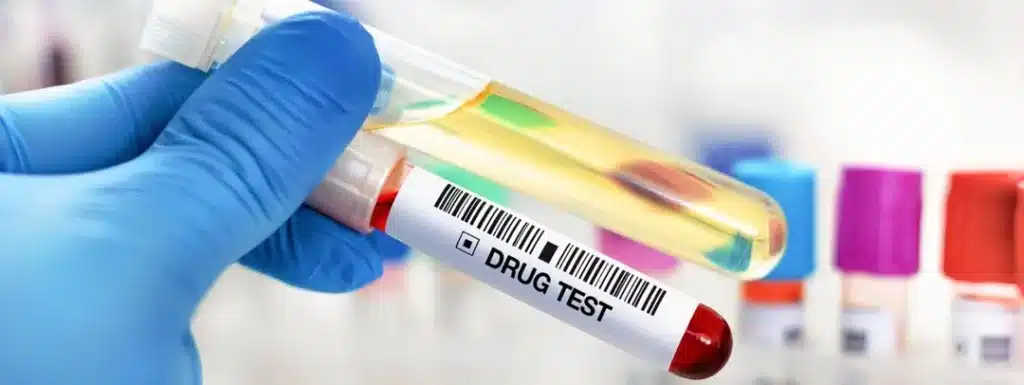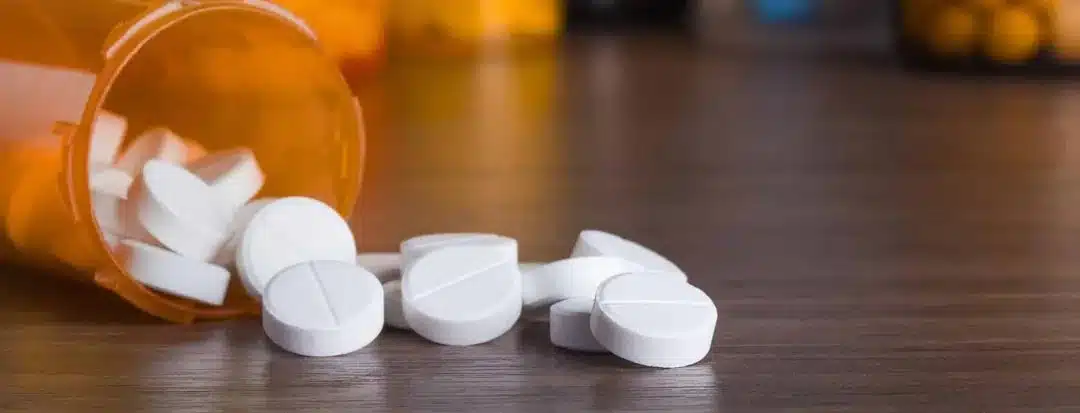Getting Answers on the Duration of Percs in the Body
Opioid use, including Percocet addiction, is an immense problem in the U.S. and around the world. What may start as a doctor’s prescription to control a pain issue can soon become a full-blown addiction.
If you’re wondering ‘how long does Percocet stay in your system,’ it’s important to know that you can receive medical help for withdrawal symptoms. Remember that addiction is a disease, and you aren’t to blame for your illness.
If you’re ready to kick a Percocet addiction, you don’t have to do it alone.
Here’s what you need to know about how long Percocet stays in your system.
How Does Percocet Abuse Begin?
The abuse of Percocet and other opioid medications is on the rise. There is a misconception that these drugs are safer than other illicit drugs.
Opioid drug abuse often involves the consumption of a substance without the recommendation or prescription of a doctor. This includes getting Percocet illegally, taking more than the prescribed amount, or taking the drug too frequently.
Percocet results in a flood of dopamine to the brain and produces a feeling of euphoria, happiness, or well-being. There is a high potential for abuse from this relatively strong form of pain medication.
People who take opiates for longer than a week or two may experience difficulty stopping. This may be due to returning pain or a growing tolerance of the drug.
Percocet abuse, especially when combined with alcohol or other drugs, increases the chances of health problems or a potential drug overdose. If you think you may have a problem with Percocet or other opiates, talk to your doctor.
There is help available to get you back on the road to a happy, healthy life.
How Long Does Percocet Stay in Your System? Knowing the Half Life of Opioids
The time it takes to eliminate Percocet from your system depends on the drug’s half-life. This is the time it takes for blood concentration levels to be reduced by half.
The elimination half-life of a drug also helps to estimate the onset of withdrawal systems. Percocet contains oxycodone and acetaminophen. Oxycodone is short-acting and has a half-life of 3.5 hours.
Acetaminophen, the other active ingredient in Percocet, has a similar half-life of around three hours. How long Percocet stays in your system is influenced by a variety of factors beyond Percocet half-life. These include:
- Age
- Liver and Kidney Function
- Metabolism
- Duration of Percocet use
People younger than 40 tend to eliminate oxycodone from their systems faster than older individuals. Someone with poor kidney or liver function will metabolize the drug more slowly than someone without these health issues.
Percocet accumulates in the body after continued use. This means the drug may be detectable longer in habitual users after the last dose.
Other factors that affect how long this drug stays in your system include:
- Level of hydration
- Level of physical activity
- Other medications used
- History of drug use
- Doses and frequency
Detection Times for Percocet Across Drug Testing Methods

Percocet is highly addictive. It’s a drug that is often looked for in drug tests. These tests are often used by employers and medical professionals to check for drug usage.
Common drug tests can detect traces of Percocet. More advanced drug tests can detect the metabolites that are produced after using Percocet.
How Long Is Percocet Detectable in Urine?
Urine tests are easily available and economical. They are commonly used for Percocet screening.
Many urine tests detect various drugs in one sample, including cocaine and amphetamines. The time that Percocet can be detected in urine depends on your liver and kidney function and your level of drug consumption.
Percocet can be detected in urine for up to 48 hours. This window of detection begins two hours after the initial dose.
How Long Is Percocet Detectable in Blood?
Percocet is detectable in blood for about 24 hours. This is considered a low detection window.
More advanced blood screenings can detect oxycodone metabolites of Percocet rather than just the drug itself. This can provide more accurate results and a longer detection time.
How Long Is Percocet Detectable in Saliva Tests?
Percocet and other opiate drugs can be detected in saliva for up to 72 hours after use. Saliva tests are a convenient method for police departments and other institutions that may not have easy access to other types of testing methods.
How Long Is Percocet Detectable in Hair?
Hair testing isn’t a common way to screen for opioids, but hair tests detect for 90 days (or more) after the last use. Hair, including the root, must be removed from the hair follicle.
This tissue can hold evidence of oxycodone and its metabolites. Percocet is detectable through a complex testing process.
How Long Do the Effects of Percocet Last?
Percocet is a long-acting opioid. It interacts with opioid receptors, including other types of narcotics. The effects of Percocet last longer than other drugs, including morphine.
The time it takes for the effects of Percocet to wear off varies from person to person. Generally, the therapeutic effects last around six hours.
For someone with a Percocet addiction, withdrawal symptoms can begin within 12 hours of their last use. The uncomfortable symptoms of withdrawal can last for up to 20 days.
Individuals with a dependence on Percocet or other opioids need medical detox and addiction treatment to break their dependency. If you or a loved one is dealing with a drug or alcohol addiction, you aren’t alone.
There are a variety of opioid treatment options available, including inpatient and outpatient opioid addiction treatment.
Symptoms of Percocet Overdose

Both acetaminophen and oxycodone in Percocet can be dangerous if you take too much. An overdose of acetaminophen can result in severe or fatal liver damage.
Too much acetaminophen combined with alcohol can create extreme liver stress that can result in liver failure or death. An overdose of oxycodone in Percocet can cause breathing problems or possible respiratory failure.
If you’re using Percocet or other opioids without guidance from your doctor, be aware that counterfeit pills may contain fentanyl or methamphetamine. The only safe medications are the ones your doctor prescribes.
A Percocet overdose is serious. It’s a medical emergency and requires immediate medical intervention.
Common Percocet Withdrawal Symptoms
After prolonged use, your body can become accustomed to the presence of certain drugs, including Percocet. When this happens, stopping your usage will result in withdrawal.
If you decide to quit taking Percocet abruptly and have a dependence on it, you will likely experience a variety of uncomfortable symptoms until you go through the detox process.
Some withdrawal symptoms of Percocet include:
- Restlessness
- Runny nose
- Watery eyes
- Fatigue
- Yawning
- Insomnia
- Joint aches
- muscle cramps
- Vomiting
- Sweating
- Rapid breathing
- Breathing problems
- Rapid heartbeat
If the thought of withdrawal is holding you back from getting the treatment you need, there are medications that can ease the stress and discomfort of opioid withdrawal.
Are You Addicted to Percocet?
Percocet is one of the most highly abused medications in the U.S. Having a dependency on Percocet is likely to lead to serious adverse outcomes. This includes physical dependence and addiction.
Percocet helps many people who need short-term pain relief. Unfortunately, tolerance to Percocet builds quickly, often before you realize there’s an issue.
Once you become tolerant to the Percocet you’re taking, you will want more or more frequent doses to achieve the same initial effects. People who receive a Percocet prescription for chronic pain often discover they have developed a physical dependence and addiction.
Percocet addiction is often called an opioid use disorder. It’s a chronic brain condition that’s serious but treatable. There is hope in the forms of medically supervised detox alongside evidence-based treatment.
Some criteria that indicate Percocet addiction include:
- Taking more than you should or taking it longer than you should
- Devoting your time to getting and using Percocet
- Trying to quit or moderate use but cannot quit
- Feelings of intense cravings for Percocet
- Continuing to use Percocet despite the problems it causes you
- Failing to fulfill your personal and work commitments due to drug use
- Avoiding social or recreational activities to use Percocet
- Using Percocet although it has caused physical or mental health issues
- Developing a tolerance to Percocet
- Experiencing withdrawal symptoms when the drug wears off
- Self-isolating or withdrawing from friends and family
If you find yourself with a Percocet addiction, you aren’t alone. The most effective addiction treatment includes supervised medical detox and ongoing medication-assisted treatment.
Comprehensive inpatient or outpatient treatment along with psychotherapy and counseling provides the best chance for recovery from opioid addiction. A good treatment program offers a mix of science-backed and holistic treatments.
There are FDA-approved medications that can ease the symptoms of withdrawal while promoting continued abstinence.
Get the Addiction Treatment You Deserve

If you received a prescription for Percocet but find yourself unable to function without it, you could have a Percocet addiction. Percocet abuse is common, and the consequences can be deadly.
If you’re considering getting help and wondering ‘how long does Percocet stay in your system,’ we can help! At Purpose Healing Center, our recovery specialists are leaders in the behavioral healthcare industry.
We provide high-quality care and individualized treatment plans for every patient. If you’re ready to move beyond your addiction to a healthier way of life, we’re here to support you.
Contact us today to get started putting Percocet in the past for good!



